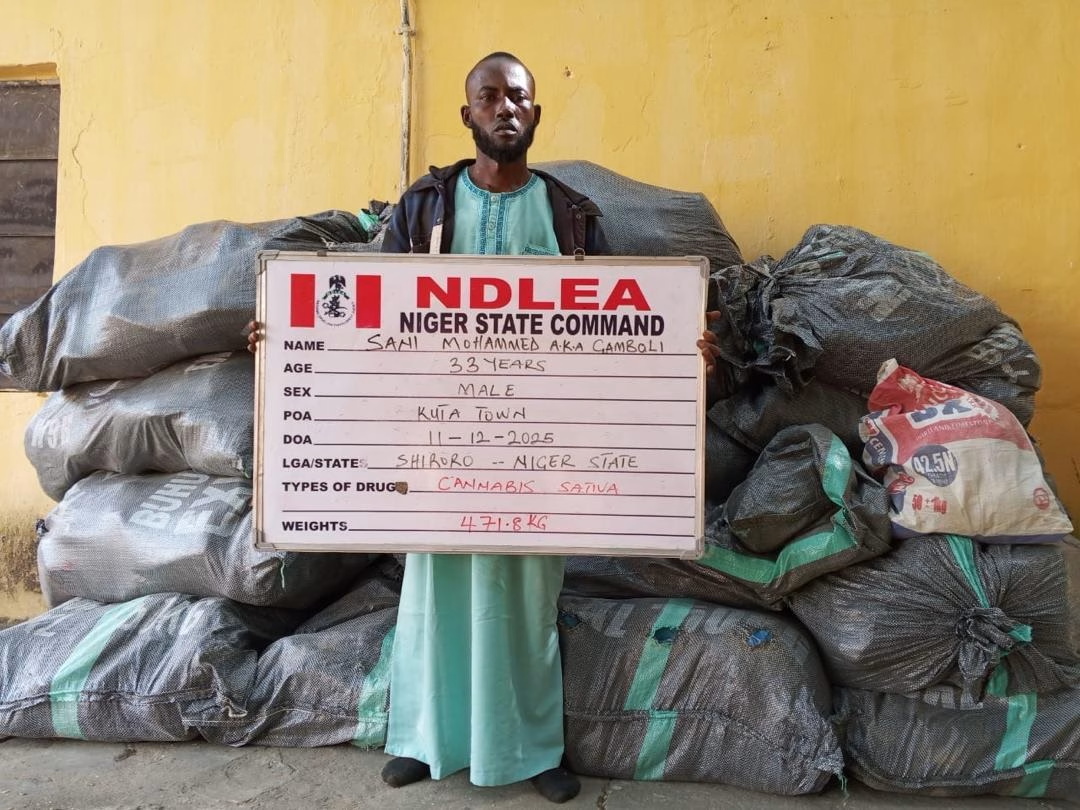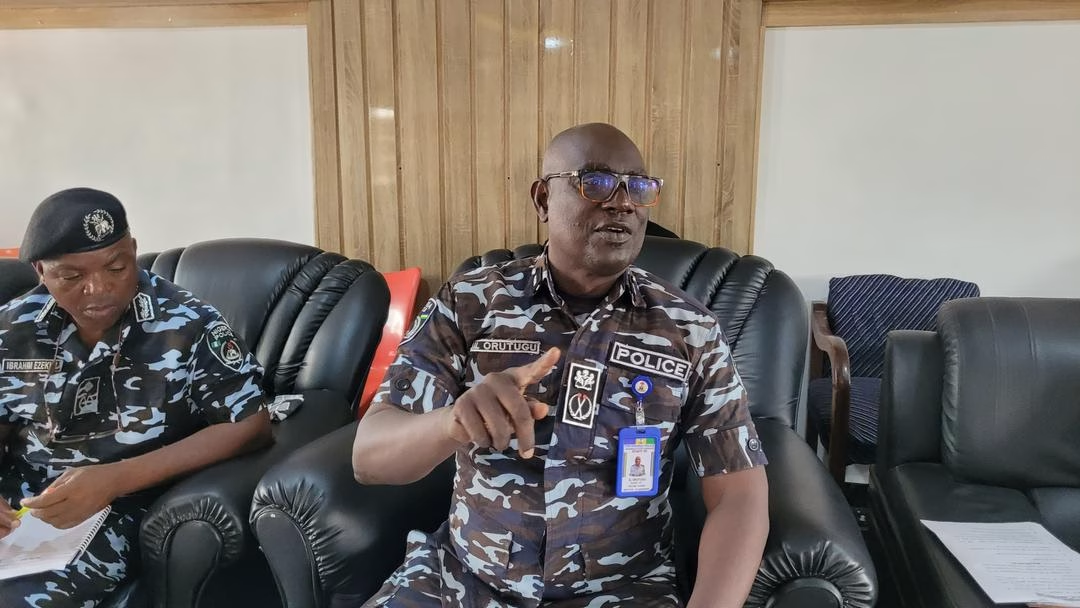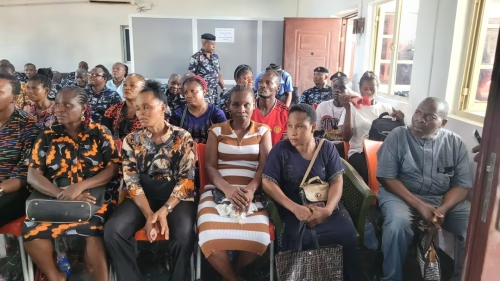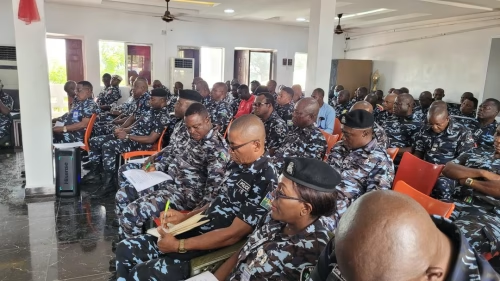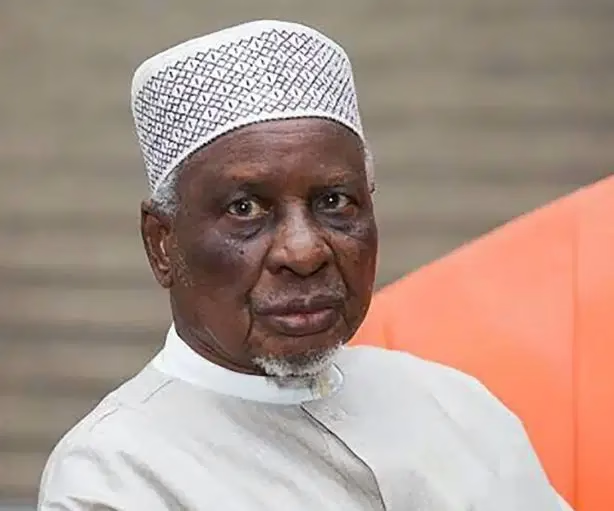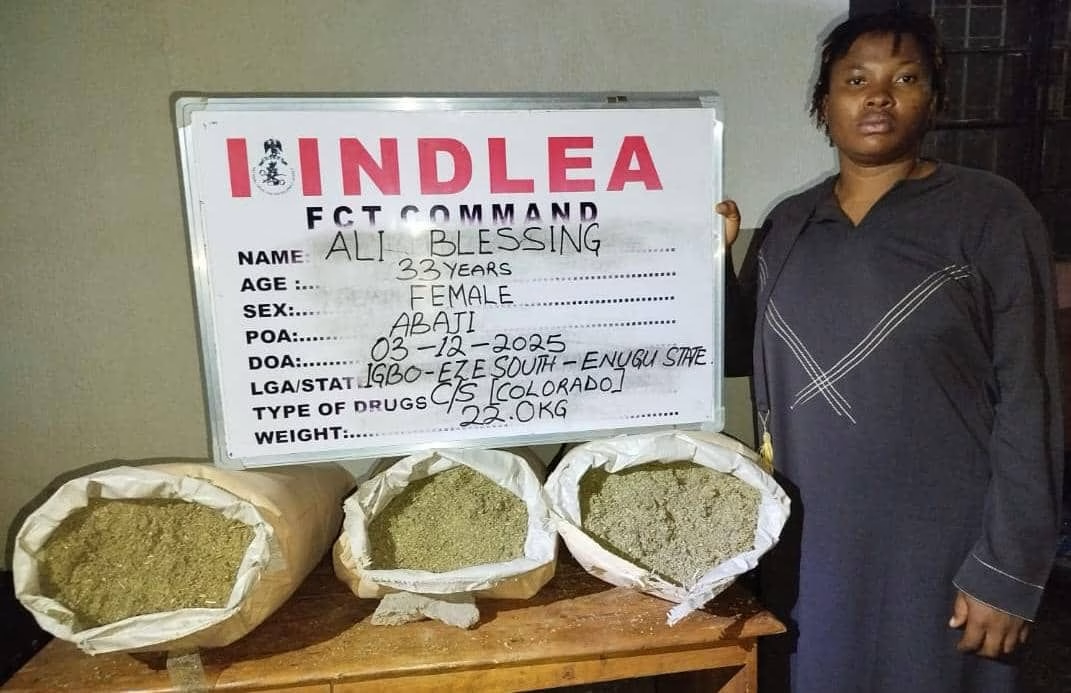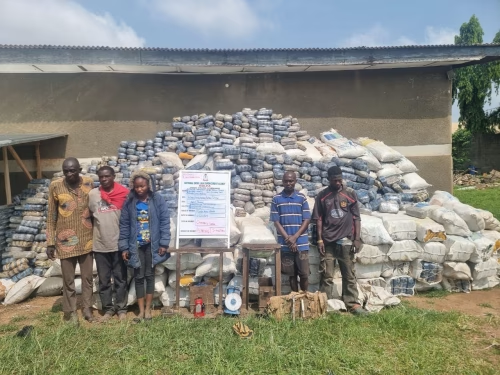By Ebinum Samuel
As NDLEA intercepts US, Canada, Sweden-bound opioids in black soup containers, designer wears; uncovers clandestine codeine syrup factory in Abia; arrests woman, son over 1,187kg skunk seizure in Ondo
Three weeks after escaping arrest at his home in Anguwan Makera, Kuta, Shiroro local government area of Niger state, a notorious supplier of illicit drugs to bandits operating in the area, 33-year-old Mohammed Sani (alias Gamboli) has been arrested by operatives of the National Drug Law Enforcement Agency (NDLEA) at his hideout.
Following credible intelligence about the illicit drug activities of Gamboli, NDLEA operatives had on 20th November 2025 raided his house at Anguwan Makera, Kuta, where they recovered 471.8 kilograms of skunk, a strain of cannabis. Though he escaped arrest during the raid and has since been in hiding, the manhunt for him eventually paid off on Thursday 11th December when NDLEA officers acting on processed intelligence traced and arrested him at one of his drug joints in Anguwan Fadama, Kuta. Intelligence reports had indicated that Gamboli is a major supplier of illicit drugs to bandits operating in Shiroro local government area.
Meanwhile, NDLEA officers in Abia on Thursday 11th December raided a clandestine codeine syrup-manufacturing factory at Amapu Igbengwo village, Umuakpara, in Osisioma local government area of the state. During the operation, operatives recovered a total of 9,015 bottles of codeine syrup weighing 1,152.2kg.
In Enugu state, operatives on Thursday 11th December arrested Ossai Emeka, 45, along Onitsha – Enugu Ezike road with 7.2kg skunk, while Enoje Agada, 40, was nabbed along Enugu-Ezike -Ette road with 94.6kg of same psychoactive substance.

A raid carried out by NDLEA operatives at a notorious drug joint known as “Beere the California” at Ido in Oyo state on Thursday 11th December led to the seizure of 3.4kg skunk, 1.6kg Colorado, a synthetic cannabis and 400grams of methamphetamine. The owner of the drug joint identified as “Idowu the killer” is currently at large while a suspect Ajibade Faruk was nabbed at the joint. Another operation at Idi Oro, Elekuro, Ibadan on Friday 12th December led to the arrest of Olusanya Abosede, 35, and the seizure of 238.4kg skunk.
While the duo of Bashiru Babalola, 43, and Ugunwale Ranti, 50, were arrested on Wednesday 10th December at Gbaji checkpoint, Seme road Badagry, Lagos with 50,000 pills of tramadol 250mg, NDLEA operatives in Ogun state arrested two suspects: Akinwale Makanjuola and Joseph Owolabi with 73kg skunk at Iperu just as another suspect Wasiu Lateef was nabbed with 25kg of same substance at Oke Agbede, Imeko area of the state on Tuesday 9th December.
In Ondo state, NDLEA officers acting on credible intelligence on Monday 10th December raided a compound in Ogbese, Akure North local government area, where they arrested a 55-year-old woman Veronica Obi and her 29-year-old son Bright Obi, and recovered 1,187 kilograms of skunk and its seeds from them.
A suspect Ohiomah Igbafe, 44, was arrested during a raid operation at Uroe community, Owan East local government area of Edo state, where 461kg skunk and its seeds were recovered on Tuesday 9th December.
In Gombe state, a suspect Muhammed Sani (alias Sha-Mu-Sha), 50, was arrested with 40,000 capsules of tramadol at Tunfure area, Gombe, while two other suspects: Muhammad Abdullahi (a.k.a Sakalala), 52, and Muhammed Hamza (a.k.a Mamman), 32, were nabbed at Ashaka Jalingo, with 56kg skunk on Monday 8th December.
No fewer than 907 pills of tramadol, tapentadol, cocodamol, amitriptyline and bromazepam concealed in containers of local black soap, and designer wears, in six different consignments going to the US, Canada and Sweden were intercepted and seized by NDLEA operatives at two major courier companies in Lagos between Tuesday 9th and Wednesday 10th December 2025.
At the Apapa seaport in Lagos, NDLEA officers on Saturday 13th December intercepted a consignment of 170,000 bottles of codeine syrup weighing 23,579kg during a joint examination of a container with men of Customs Service and other security agencies.
In like manner, Commands and formations of the Agency across the country continued their War Against Drug Abuse, WADA, sensitization activities to schools, worship centres, work places and communities among others in the past week. These include: WADA enlightenment lecture to students and staff of Community Senior Secondary School, Sheme, Katsina; Government College, Tudun Wada Dankade, Kano; and Methodist High School, Makurdi, Benue, while the Enugu state command of the Agency paid a WADA advocacy visit to HRM Igwe Ikechukwu Samuel Asadu, Chairman, Enugu State Council of Traditional Rulers.
While commending the officers and men of DOGI, Niger, Abia, Oyo, Enugu, Seme, Ogun, Ondo, Gombe, Apapa and Edo Commands for the arrests, seizures and their dexterity, Chairman/Chief Executive Officer of NDLEA, Brig. Gen. Mohamed Buba Marwa (rtd) enjoined them and their colleagues across the country to continue with the ongoing balanced approach to the drug control efforts of the Agency.


